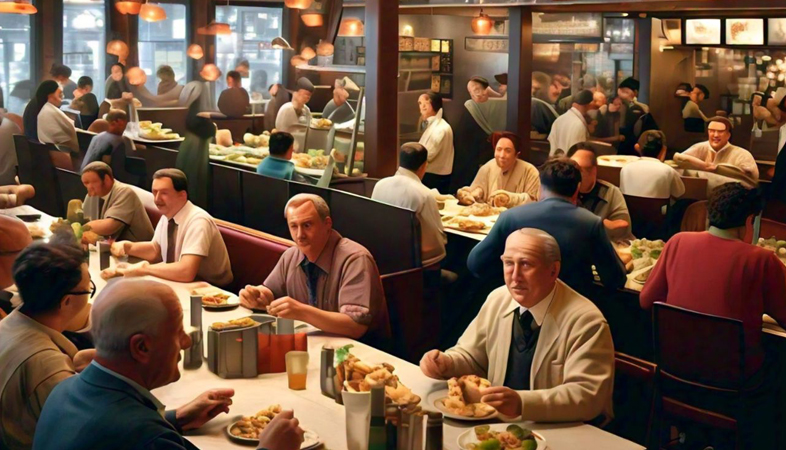The Rise of Dark Kitchens: Exploring the Business Opportunities and Operational Challenges of Virtual Restaurants and Ghost Kitchens
These innovative culinary concepts operate without traditional storefronts, serving customers exclusively through online ordering and delivery platforms.
In the ever-evolving landscape of the restaurant industry, a
new phenomenon is rapidly gaining traction: dark kitchens, also known as
virtual restaurants or ghost kitchens. These innovative culinary concepts
operate without traditional storefronts, serving customers exclusively through
online ordering and delivery platforms. In this article, we'll delve into the
burgeoning world of dark kitchens, examining the business opportunities they
present and the operational challenges they face in the quest to revolutionize
the way we dine.
1. Business Opportunities in the Digital Age: Dark kitchens represent a paradigm shift in the restaurant business, capitalizing on the growing demand for convenience, speed, and variety in dining experiences. By operating exclusively through online channels, dark kitchens can reach a broader customer base without the overhead costs associated with physical storefronts, such as rent, utilities, and staffing. This streamlined business model allows dark kitchen operators to maximize profitability while offering competitive pricing and diverse menu options to tech-savvy consumers.
2. Agile and Scalable Operations: Unlike traditional brick-and-mortar restaurants, dark kitchens are designed for efficiency and scalability, with kitchens optimized for production and delivery. By focusing solely on food preparation and packaging, dark kitchen operators can streamline operations, minimize wait times, and fulfill orders with greater speed and accuracy. This agility allows dark kitchens to adapt quickly to changing consumer preferences and market trends, experimenting with new menu concepts and expanding into new geographic areas with relative ease.
3. Diversification and Brand Experimentation: Dark kitchens offer an ideal platform for culinary entrepreneurs and established restaurant brands to experiment with new concepts, cuisines, and branding strategies without the risk and expense of opening physical locations. By launching virtual restaurants within existing kitchen spaces, operators can test market demand, gather customer feedback, and refine their offerings before committing to larger investments. This flexibility enables dark kitchen operators to diversify their revenue streams and capitalize on emerging trends in the food and beverage industry.
4. Logistical and Operational Challenges: While dark kitchens offer numerous advantages, they also pose unique logistical and operational challenges that must be addressed to ensure success. Efficient order fulfillment, accurate inventory management, and timely delivery are critical components of the dark kitchen business model, requiring robust technology systems and logistics infrastructure to support them. Additionally, maintaining food quality and consistency across multiple delivery channels can be challenging, especially in high-volume settings where demand fluctuates unpredictably.
5. Customer Experience and Brand Loyalty: Despite the convenience of online ordering and delivery, dark kitchens must prioritize customer experience and brand loyalty to stand out in a crowded marketplace. Building a strong brand identity, cultivating a loyal customer base, and delivering exceptional service are essential for long-term success in the virtual restaurant space. This requires investing in marketing and branding initiatives, optimizing digital platforms for user experience, and providing responsive customer support to address inquiries and resolve issues in real-time.
6. Regulatory and Legal Considerations: As dark kitchens continue to proliferate, regulatory and legal considerations surrounding food safety, zoning ordinances, and licensing requirements have come under scrutiny. Dark kitchen operators must navigate a complex regulatory landscape, ensuring compliance with local health codes, labor laws, and taxation regulations. Collaborating with regulatory authorities, industry associations, and legal experts can help dark kitchen operators stay informed and proactive in addressing compliance issues and mitigating potential risks.
The rise of dark kitchens represents a disruptive force in the restaurant industry, offering a compelling blend of business opportunities and operational challenges. By embracing digital technology, streamlining operations, and prioritizing customer experience, dark kitchen operators can capitalize on the growing demand for online ordering and delivery, reshaping the way we think about dining in the digital age.
.png)





























